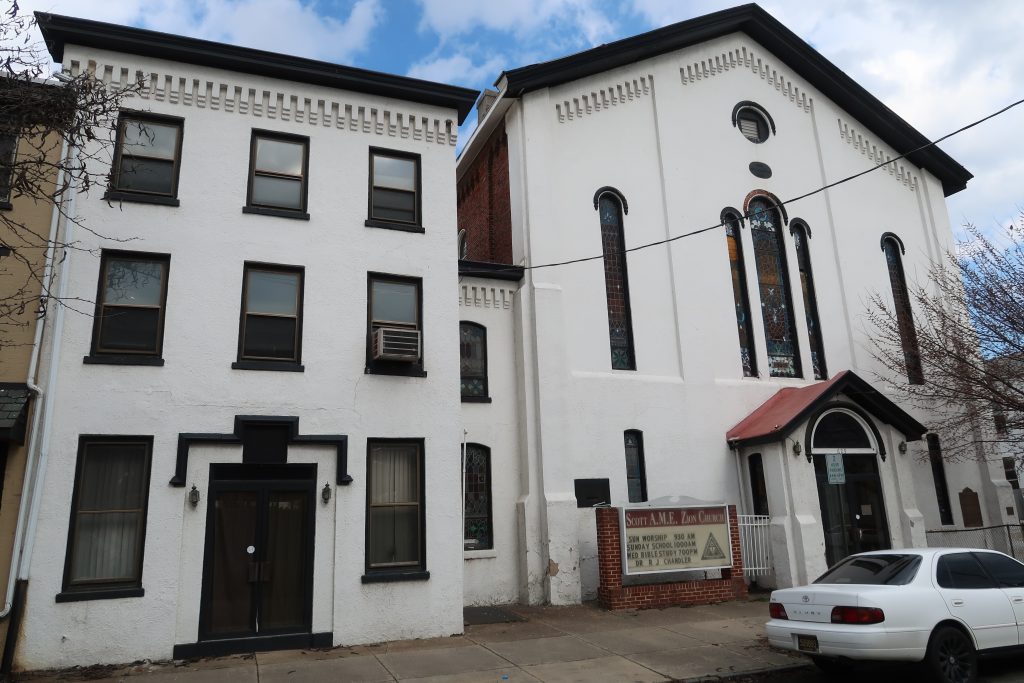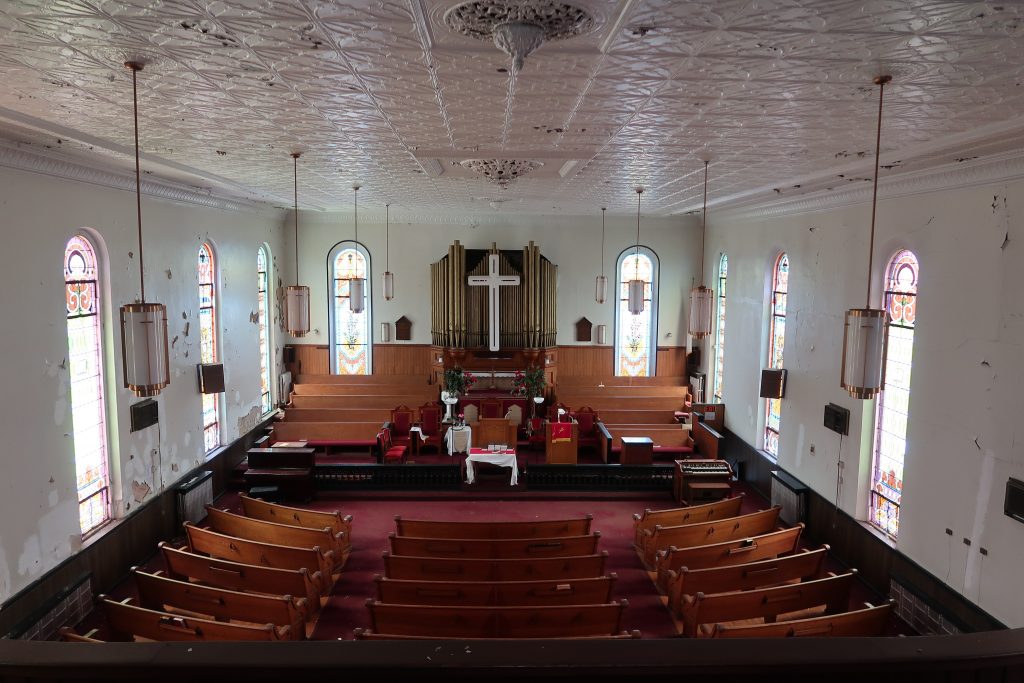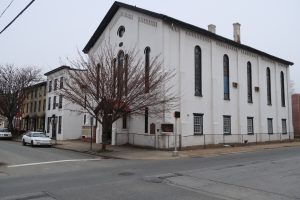Scott A.M.E. Zion Church listed in the National Register of Historic Places

By Emily Whaley, architectural historian and acting National Register coordinator
Scott African Methodist Episcopal (A.M.E.) Zion Church, located on the corner of East 7th and North Spruce streets was listed in the National Register of Historic Places on March 28, 2024, for its significance to the City of Wilmington’s religious and African American history and as an example of the Romanesque Revival style.
Originally built between 1868 and 1872 in the Romanesque Revival style, the church was first called Scott Methodist Episcopal (M.E.) Church. The church grew from a mission school on 7th and Walnut streets starting in 1851, a typical pattern for Methodism within Wilmington in the 19th century. A rebuilding campaign starting in 1868 (which ended in 1872) is responsible for the appearance of the church today.
Scott M.E. Church anchored itself as a focal point within the local community, highlighted by successful fundraising and outreach efforts. A three-story stucco front in the Romanesque Revival style was added in 1926 on newly acquired neighboring land, providing an auditorium, kitchen, parlors and meeting rooms. The congregation of Scott M.E. Church continued to make minor changes to the building throughout their occupancy, highlighting the close-knit relationship between church and community present in Methodist congregations within Wilmington during the late 19th and early 20th centuries. By the mid-20th century, the congregation’s population dwindled and ultimately the building was sold.

In 1959, congregants of Grace A.M.E. Zion Church purchased the building and moved into the space because their own church, located a short distance away on East 7th Street, was demolished in Wilmington’s “Poplar Street Project A” urban renewal project. As stipulated in the purchase agreement, Grace A.M.E. Zion changed its name to Scott A.M.E. Zion.

During the 1960s and ‘70s, Scott A.M.E. Zion Church’s membership grew exponentially, boasting about 580 congregants in 1975. Despite relocation and the name change, the congregation of Scott A.M.E. Zion Church persevered and flourished in their new home at 629 East 7th Street. After acquiring the property, the congregation made updates to the building including the addition of office and meeting space in the lower level of the church. At present the church is undergoing rehabilitation efforts to enhance its longevity for future generations.
The National Register nomination was prepared by the University of Delaware’s Center for Historic Architecture and Design on behalf of the City of Wilmington and the congregation of Scott A.M.E. Zion Church. The work was supported by the Historic Preservation Fund sub-grant program for certified local governments, managed by the State Historic Preservation Office.
Emily Whaley works with the National Register and Historic Preservation Tax Credit Programs. She also provides technical assistance with historic preservation-related capital projects.


